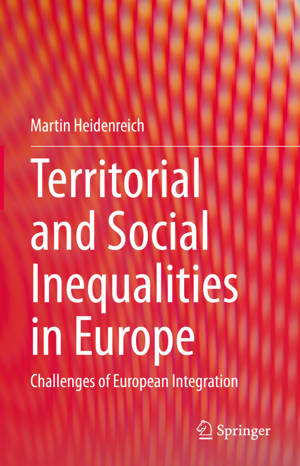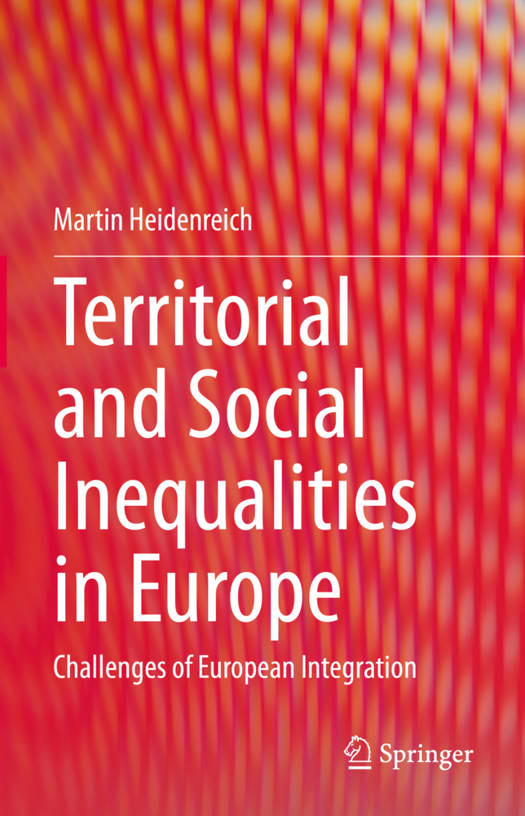
En raison d'une grêve chez bpost, votre commande pourrait être retardée. Vous avez besoin d’un livre rapidement ? Nos magasins vous accueillent à bras ouverts !
- Retrait gratuit dans votre magasin Club
- 7.000.000 titres dans notre catalogue
- Payer en toute sécurité
- Toujours un magasin près de chez vous
En raison de la grêve chez bpost, votre commande pourrait être retardée. Vous avez besoin d’un livre rapidement ? Nos magasins vous accueillent à bras ouverts !
- Retrait gratuit dans votre magasin Club
- 7.000.0000 titres dans notre catalogue
- Payer en toute sécurité
- Toujours un magasin près de chez vous
Territorial and Social Inequalities in Europe
Challenges of European Integration
Martin Heidenreich
Livre relié | Anglais
137,45 €
+ 274 points
Format
Description
This book examines social inequalities in Europe, especially those caused by economic factors. It starts with the paradox of European inequality, where on the one hand, even total income inequality in Europe is significantly lower than in most parts of the world; but on the other, Europe is also characterised by profound and durable inequalities within the continent. It discusses inequalities caused by the exclusion of marginalised groups from the labour market, with considerable and sometimes increasing differences between central and peripheral regions, pronounced wealth and labour market inequalities, and significant rates of persistent poverty, deprivation, educational poverty, low wages and unemployment. The book also discusses broader territorial inequalities, which are the basis for divisions between Northern and Southern Europe, East and West, between qualified and unqualified employees, younger and older people, men and women, and migrants and non-migrants. The book raises questions about the winners and losers of the social transformations linked to the introduction of the Euro, the Eastern enlargement of the EU, and the financial and Eurozone crises. It is based on a comprehensive analysis of a European-wide microdata set on income and living conditions (EU-SILC). The empirical research material, which is the first to deploy this data in a comprehensive manner, consists of detailed empirical analyses of social divisions and Europeanisation processes in 30 European countries. It analyses and explains the transformation of the previously dominant national spaces into a European social space. This topical book is of interest to academics and students in the fields of sociology and comparative social sciences, along with those studying European regional geography, anthropology, international relations, and international politics.
Spécifications
Parties prenantes
- Auteur(s) :
- Editeur:
Contenu
- Nombre de pages :
- 347
- Langue:
- Anglais
Caractéristiques
- EAN:
- 9783031126291
- Date de parution :
- 29-10-22
- Format:
- Livre relié
- Format numérique:
- Genaaid
- Dimensions :
- 150 mm x 230 mm
- Poids :
- 657 g

Les avis
Nous publions uniquement les avis qui respectent les conditions requises. Consultez nos conditions pour les avis.






